Percy Sherwood: Complete Works for Cello and Piano
The Anglo-German composer Percy Sherwood, born in 1866, seems to have slipped through the cracks of history, although he has an impressive output of orchestral, chamber, choral and instrumental music to his credit. He was once an important figure in his native Dresden, where he owned an imposing villa, but after moving to Britain at the beginning of the First World War he faded from view and by the time of his death in London in 1939 his music was as good as forgotten. This first CD in a series of Sherwood recordings — the first-ever dedicated to his music — reveals a major lost Romantic, with a style that is both lyrical and passionate.
Joseph Spooner, cello
David Owen Norris, piano
Listen To This Recording:
-
Cello Sonata No. 1, Op. 10 (1891)
- I. Allegro moderato
- II. Adagio ma non troppo
- III. Finale: Presto
- No. 1 Legende: Andante
- No. 2 Intermezzo: Allegretto, teneramente
- No. 3 Saltarello: Presto
- I. Allegro vivace
- II. Legende: Andante semplice ed espressivo
- III. Minuetto: Allegretto grazioso
- IV. Finale: Allegro molto
- No. 1 Molto moderato
- No. 2 Menuett: Grazioso, non troppo allegro
- No. 3 Adagio
- No. 4 Andante
- No. 5 Serenade: Andantino
Drei Stücke, Op. 14 (?1900)
Cello Sonata No. 2, Op. 15 (1900)
Fünf kleine Stücke für Cello und Pianoforte (1886t87)
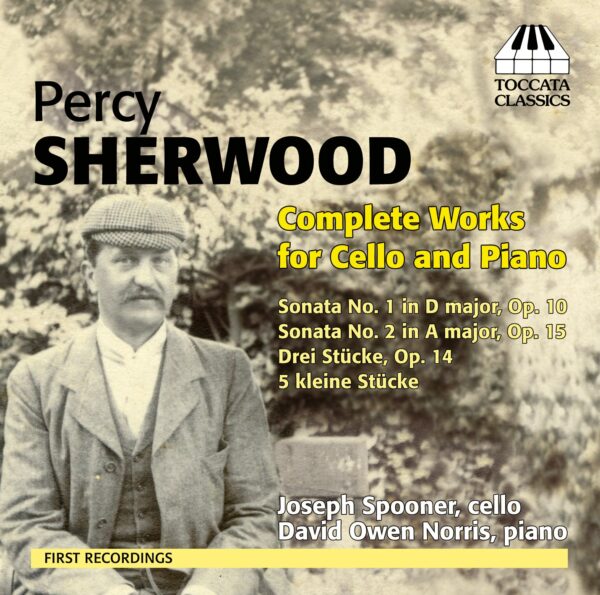
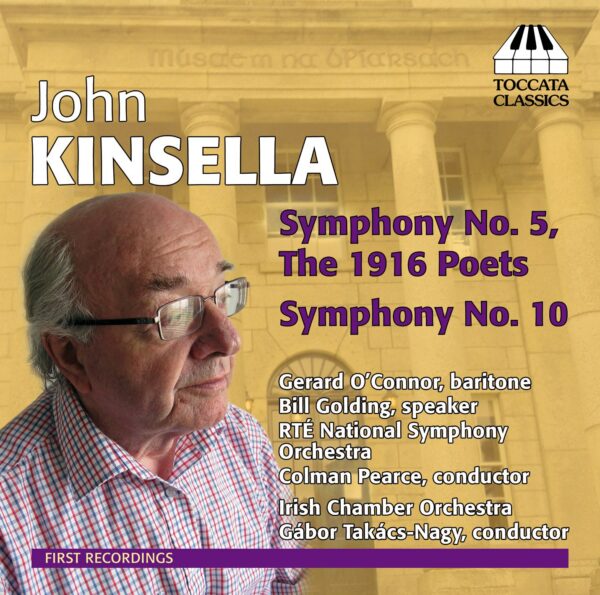
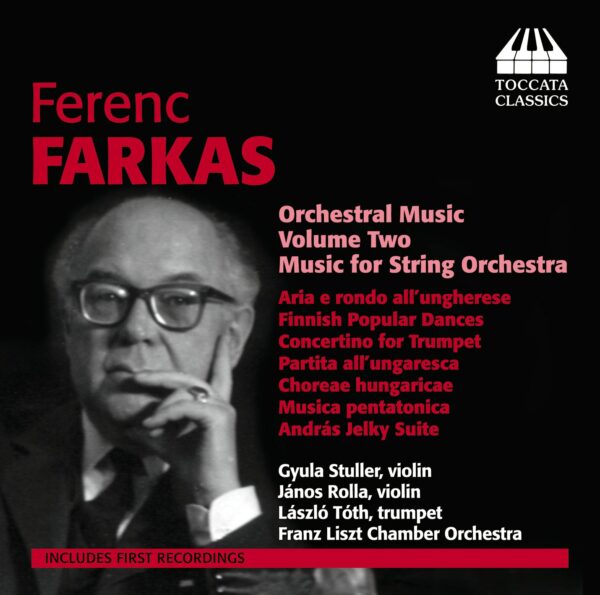
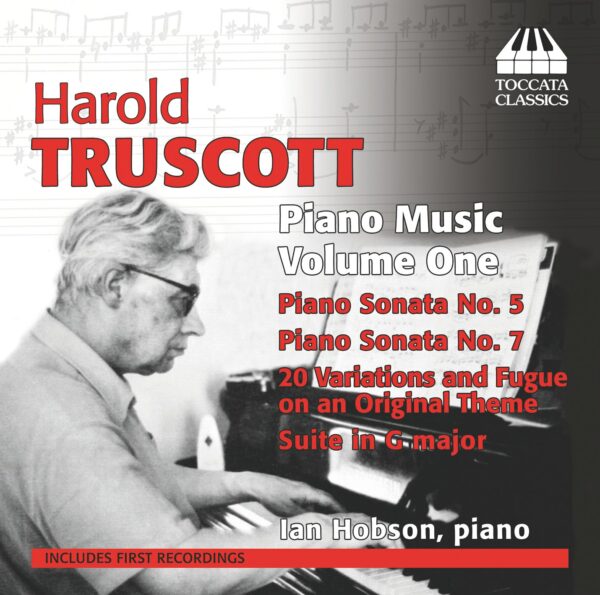
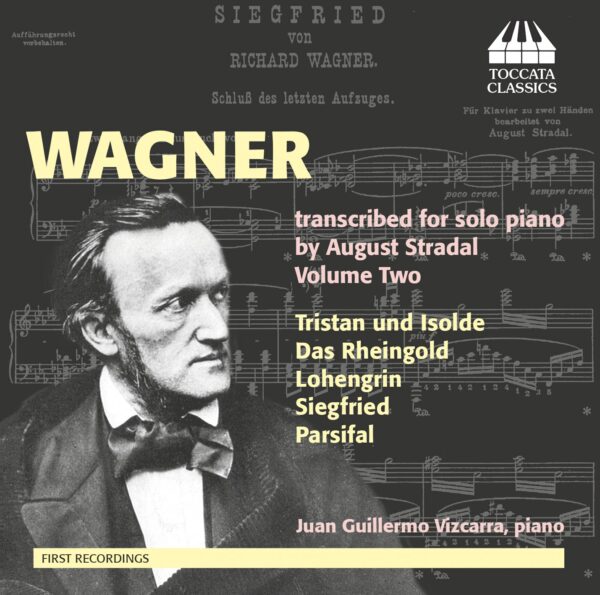
Clossical Lost and Found :
‘A long time champion of lesser known cello repertoire, Joseph Spooner deserves great credit for taking the time and effort to give us loving performances of the selections here. Along with pianist David Owen Norris’ sympathetic accompaniment, he makes this a sterling disc of discovery. Made at the University of Southampton’s Turner Sims Concert Hall in England, the recordings present a compact soundstage with the two instruments ideally balanced. The cello tone is glowing, and the piano well rounded, making for an exceptionally musical sounding disc.’
—Bob McQuiston, CLOFO
BMS News :
‘… not just very well-written, but so full of fire and character and with individuality all its own. Music of this kind needs such a cellist of character to bring it to life and here we are particularly fortunate that Joseph Spooner responds to this music with total dedication and passionate commitment, combined with a distinctive cello sound and personality which brings out all the inherent qualities. He is partnered by the ever-supportive and imaginative David Owen Norris in the fine acoustics os Southampton University …. A particular bonus is the fulsome booklet note from Joseph, which amounts to a mini-biography in itself ( I have never seen so many footnotes – 55!). An excellent bargain and a brilliant introduction to Percy Sherwood’s rediscovery.’
—Michael Jones, BMS News
MusicWeb International :
‘Toccata take meticulous pains over their productions. There is nothing here for those of the critical community who belabour companies for inadequate or absent documentation. On the contrary, this and the other Toccata discs stand as exemplars. Martin Anderson would not have it any other way. The booklet runs to 24 pages in English only and that includes four photographs. It amounts to an extended encyclopaedia entry for Sherwood. The research done by cellist Joseph Spooner seems to have been original. I have never seen such an extensive essay on Sherwood. It’s rich in footnotes and the style is fluent and uncongealed.
The playing is all you might hope for with both Spooner and Owen Norris in assured and exultant form. […]
Two lanky late-romantic cello sonatas make an unmistakably confident first entry for Anglo-German composer Percy Sherwood.’
—Rob Barnett, MusicWeb International
Fanfare Magazine :
‘Spooner and Norris play the Adagio with smooth singing tones. While the cellist plays with plaintive tones, the pianist offers occasional snatches of sunlight that brighten the mood. Spooner is an excellent cellist and his opulent tones can tug at the listener’s heartstrings. He uses a huge gradation of dynamics and can produce a sound that speaks directly to the emotions. Norris’s piano is relatively quiet for much of the second movement but when he breaks loose, toward the end, it is with tremendous melodic power. The third movement, which is marked Presto, shows the tremendous musicianship and technical prowess of both artists. […]
There is no comparable recording of this music and this disc is very well put together, so I suggest that anyone who would like to hear more beautifully played late-Romantic music pick this one up.’
—Maria Nockin, Fanfare Magazine March/April 2013